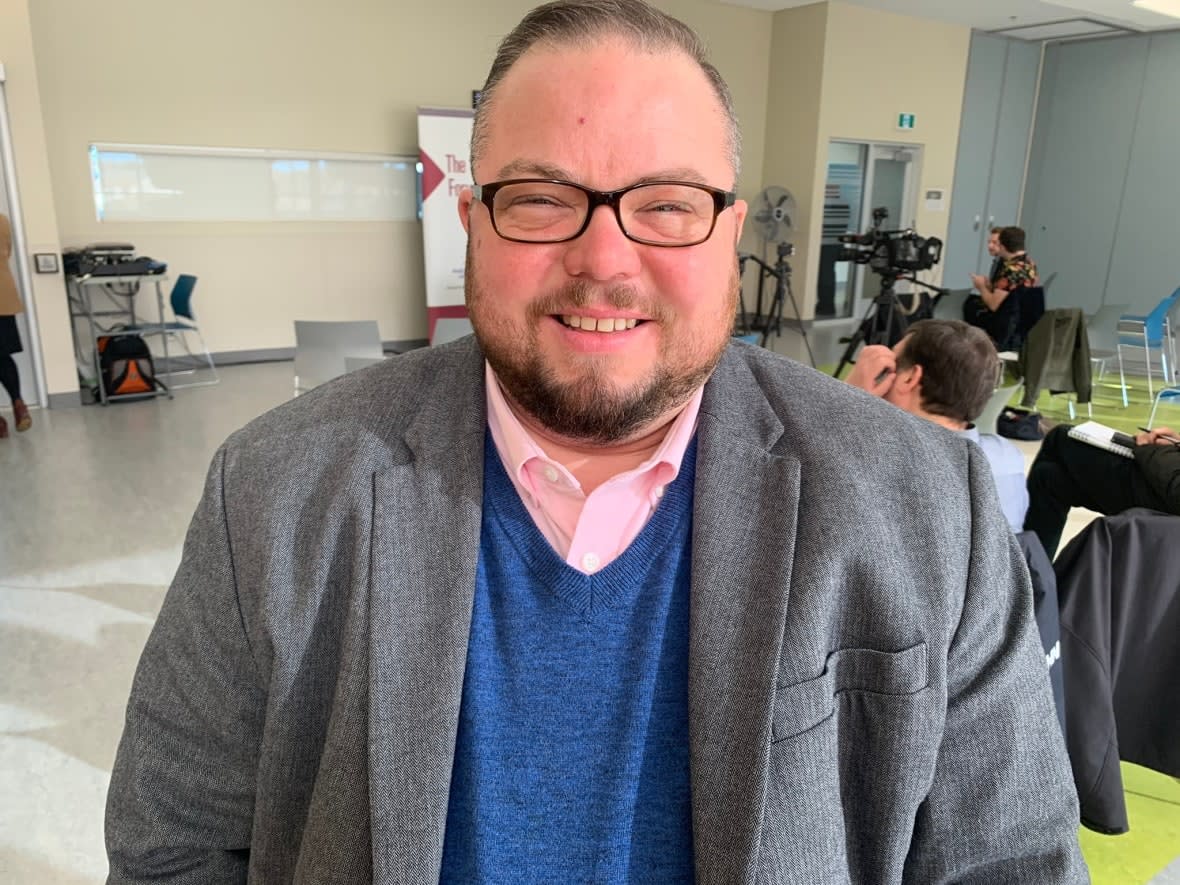'I was brought to tears': 2 N.L. advocates celebrate bill banning conversion therapy


Federal Members of Parliament unanimously voted to fast-track Bill C-4, which would ban conversion therapies aimed at LGBTQ Canadians on Wednesday, with advocates in Newfoundland and Labrador praising the decision.
Gemma Hickey of St. John's, who experienced conversion therapy as a teenager and attempted suicide because of it, awaited the vote in Ottawa after advocating for the ban for three decades.
"I was brought to tears. This will save lives," Hickey told CBC News on Friday. "I just can't tell you how proud I am to be a Canadian. I feel like we converted a country."
A previous version of the legislation failed to pass Parliament earlier this year. The federal Liberal government reintroduced a tougher third version of the bill Monday. MPs voted to ban the practice two days later, and the bill was adopted unanimously by the House of Commons.
Getting to this point, says Hickey, was a long and winding road — and so was making people acknowledge that conversion therapy exists in Canada.
Conversion therapy aims to change a person's non-heterosexual orientation, their gender identity or their gender expression. The practice has been discredited and is considered harmful.
Often, says Hickey, it is rooted in faith-based practices and beliefs.
At some point I realized I don't need to change them. - Katherine Roberts
Those beliefs were what led Katherine Roberts, a former ordained evangelical minister from Cottrell's Cove, N.L., to make two of her children undergo conversion therapy years ago.
"Part of the beliefs of my religious circle was that … anything other than heterosexuality was sinful and wrong," Roberts told CBC News on Thursday.
"Because [my husband and I] believed that being gay just meant a life of misery and torment and then an eternity in hell, I was terrified that my kids were gay. I thought they would have a horrible, horrible life."
Evangelicalism is a transdenominational movement within Protestantism, its views ranging from liberal to fundamentalist between different churches. Views on the LGBTQ community vary accordingly.
Roberts, who was on the fundamentalist end of the scale, says her church's stance on homosexuality sparked a re-examination of her beliefs.
"Even when I tried to pray the gay away for years, [my kids] were still pretty gay at the end of it," said Roberts.
"At some point I realized I don't need to change them.… As a pastor, I believe that it was wrong as well. And now I'm sorry that I did it. I'm sorry that I inflicted the pain on other people and my kids."

Roberts has since left her church and now advocates against conversion therapy.
"I think it's an amazing step forward, and I'm pretty proud to be a Canadian at this moment," she said.
She also has a message for anyone who is upset about the ban.
"Come out of [your] bubble of indoctrination and look at what the rest of the world is saying about conversion therapy," she said.
"Open your eyes to the possibility that you may be wrong, that maybe these people are fine the way they are, that it's normal and natural."
The bill now needs to pass Senate approval — which advocates hope might happen in the coming weeks. Hickey is hopeful that there won't be any roadblocks in this last step of making conversion therapy illegal.
"This is a long time coming. I feel like my life has come full circle in so many ways because this was the root of all my advocacy work," said Hickey.
"I'm just so glad I'm here to see this day. I never thought I would be."
The bill, says Hickey, sends a message of hope, especially to young people.
"You've been affirmed again by your country and this should be validating," they said.
"But also, once you learn to love yourself, the rest is history. And this is the important thing I think I've learned over the years. You can't fix what's not broken."
Read more from CBC Newfoundland and Labrador


